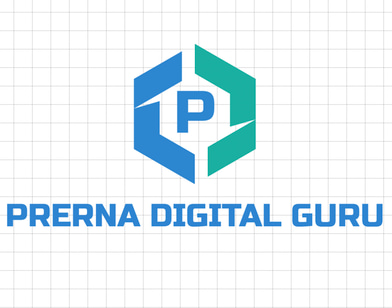Unlocking Success: A Comprehensive Guide to SEO in Digital Marketing
5/8/20243 min read


In today’s fast-paced digital marketing landscape, mastering the art of SEO is no longer just an option—it’s a necessity. With countless voices competing for attention online, understanding SEO in digital marketing can set your business apart. From keyword research and on-page optimization to building backlinks and improving user experience, every aspect of search engine optimization plays a vital role in driving meaningful organic traffic. Whether you're a seasoned marketer or just beginning your journey, this guide helps you unlock the full potential of SEO. Embrace the power of search engine optimization, and watch your online presence flourish into a hub of engagement and conversion. Let’s dive in and explore what is SEO and why it matters.
What is SEO in Digital Marketing
Search engine optimization (SEO) is the backbone of digital marketing. It focuses on increasing your website’s visibility in search engines like Google to drive more organic traffic. Here's a quick look at what SEO in digital marketing entails:
Boosts Search Visibility: Helps your site rank higher in search engine results pages (SERPs).
Drives Organic Traffic: Attracts unpaid visitors through strategic keyword use.
Ongoing Process: Requires regular updates to keep up with algorithm changes.
Involves Multiple Elements: Includes on-page SEO, technical SEO, and off-page SEO.
Increases Conversions: Brings in the right audience, improving your chances of generating leads or sales.
The Importance of SEO in Digital Marketing
In a world where users turn to search engines for answers, SEO is crucial for businesses wanting to stay visible. So, why is SEO important? Here's why:
Improves Online Visibility: Helps potential customers find your website easily.
Builds Trust & Credibility: Top-ranking sites are often seen as more trustworthy.
Cost-Effective Marketing: Unlike paid ads, search engine optimization delivers ongoing value with minimal costs.
Enhances User Experience: SEO prioritizes mobile responsiveness, loading speed, and intuitive site navigation.
Long-Term Strategy: With time, SEO builds momentum that keeps driving traffic and results.
Key Components of SEO: On-Page, Off-Page, and Technical
Understanding the pillars of SEO in digital marketing is key. These include:
1. On-Page SEO
On-page SEO involves optimizing individual pages on your site to make them more relevant to search queries.
Optimize title tags, headers, and meta descriptions
Use targeted keywords strategically
Add internal links for better site navigation
Optimize images (alt text, file sizes)
Write engaging, valuable content
2. Off-Page SEO
Off-page SEO includes actions outside your website that build authority and relevance.
Build quality backlinks from high-authority sites
Engage in influencer collaborations and guest posts
Leverage social media for visibility and brand mentions
Encourage online reviews and testimonials
3. Technical SEO
Technical SEO focuses on improving the backend of your website.
Ensure mobile responsiveness
Improve website loading speed
Fix broken links and crawl errors
Implement HTTPS for security
Submit XML sitemaps and optimize your robots.txt
Keyword Research: Finding the Right Terms for Your Audience
Successful search engine optimization starts with strategic keyword research.
Brainstorm keywords relevant to your industry
Use tools like SEMrush, Ahrefs, or Google Keyword Planner
Understand the intent behind search queries
Balance between short-tail and long-tail keywords
Target terms with strong conversion potential
If you're just starting out, consider enrolling in a search engine optimisation free course to better understand keyword analysis and content alignment.
The Role of Backlinks in SEO Success
Backlinks signal trust and authority to search engines. To build a strong off-page SEO profile:
Create content worth sharing—guides, infographics, original research
Collaborate with industry influencers and bloggers
Monitor your backlink profile regularly
Disavow spammy links
Steer clear of black-hat tactics like buying links
Common SEO Mistakes to Avoid
Even the best-intentioned efforts can backfire if misapplied. Watch out for:
Overemphasis on keywords without content quality
Ignoring technical SEO issues like slow load speed or broken links
Using outdated practices like keyword stuffing
Failing to adapt to search engine algorithm updates
Not tracking SEO performance with tools like Google Search Console or Analytics
Neglecting mobile-friendliness or website security
Conclusion
SEO in digital marketing is more than a strategy—it’s a powerful, evolving tool for building long-lasting brand visibility. From on-page SEO and off-page SEO to technical SEO, mastering every layer ensures you reach and resonate with your audience. Whether you're learning what is SEO or looking to refine your existing strategy, staying consistent and informed is key. Consider exploring a search engine optimisation free course to sharpen your skills and stay ahead in the ever-changing world of digital marketing.
Let SEO be the engine that powers your brand to digital success.
